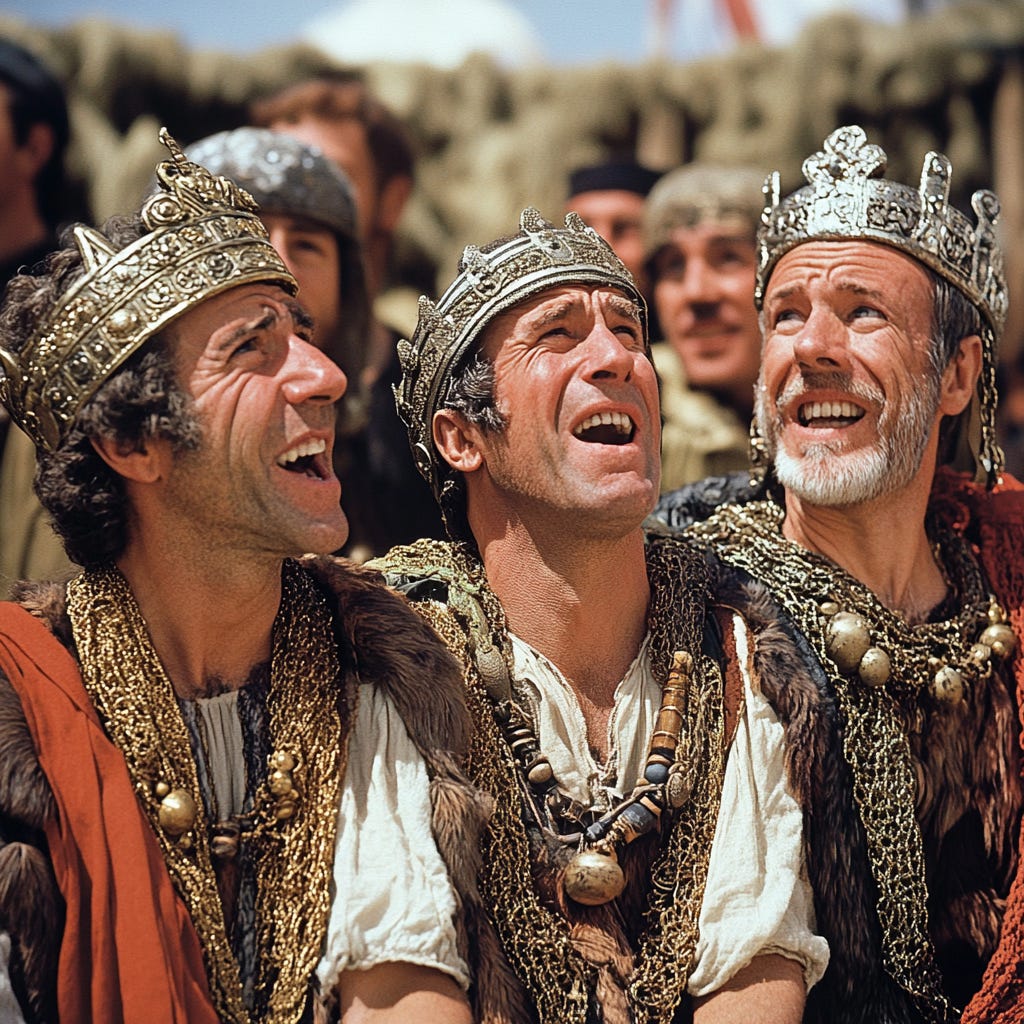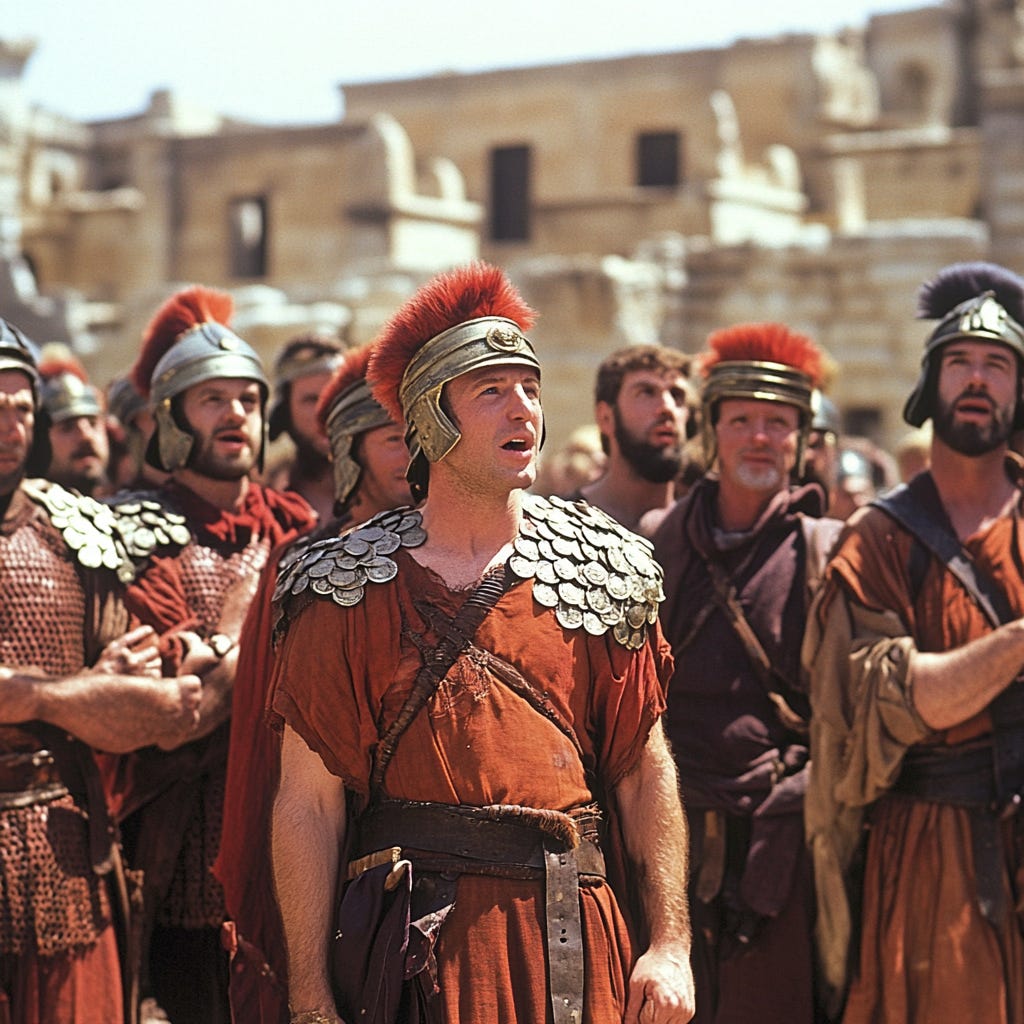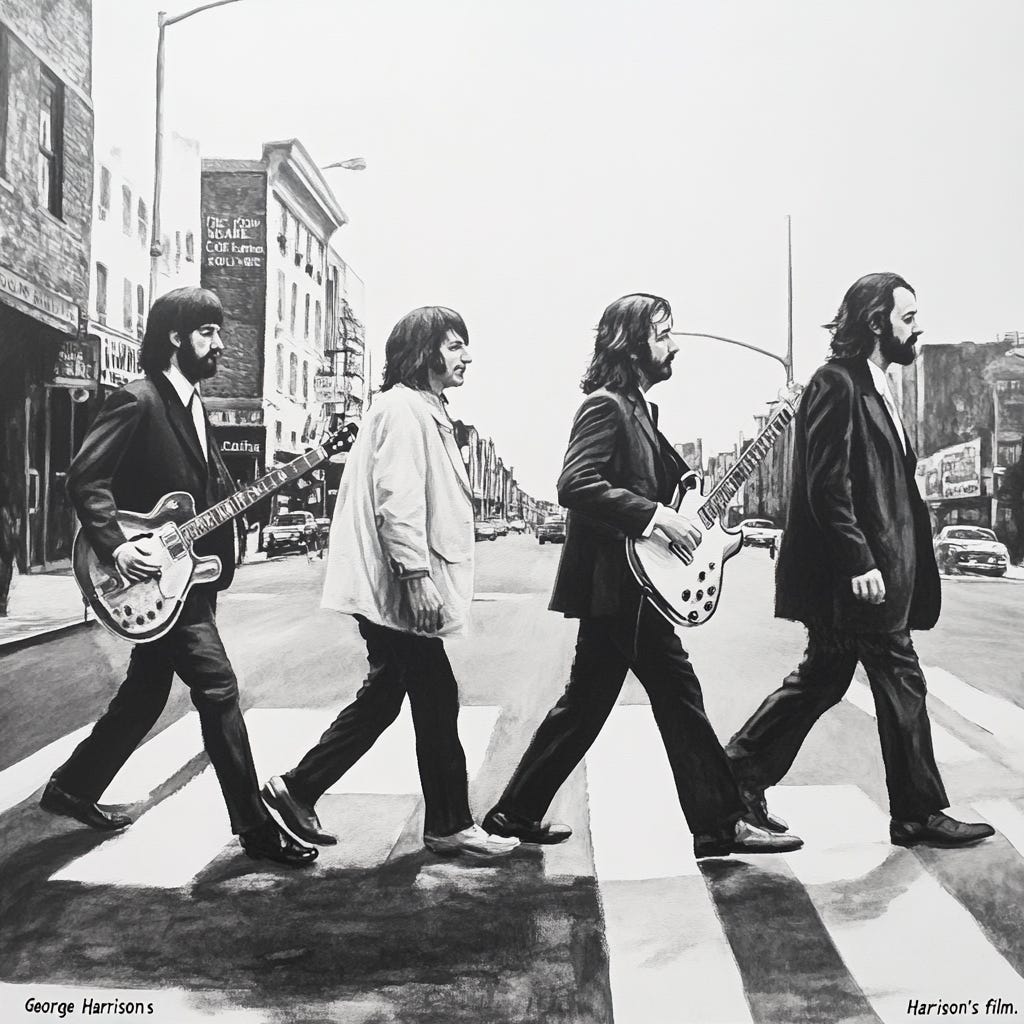Current Time.
Life of Brian
In the timeless Monty Python movie Life of Brian, one of the most memorable scenes occurs when a group of Romans discusses the benefits of Roman rule. A man, exasperated with their claims, asks, "What have the Romans ever done for us?"
The response comes from a rather unimpressed Roman soldier saying: "Well, apart from the aqueducts, the sanitation, the roads, the public baths, the irrigation systems, the postal service, the public health system, the standing armies, the central heating, the fresh-water supply, the sewage system, and the public education, they've done nothing."
This line is a classic example of Monty Python's humor, satirizing the tendency of people to overlook the positive contributions of those in power. Flash-forward from the Roman Empire to the 19th century, and we see history repeating itself. Much like the complaints and accusations from occupied nations 2000 years ago, the British and French Empires' mandate rule in the Middle East after their victory in the First World War brought them only grievances despite their contributions to the region.
While they still face serious accusations of being colonialist oppressors to this day, their contribution to the Middle East in almost every aspect of life cannot be denied.
The Rules of The Game
Until the 20th century, winning a war often meant taking control of the losing side's territory. When gaining control of the Ottoman Empire's territory, the British and French saw the gap between the wealthy and the poor, especially the enormous gap between European and Middle Eastern life, even at the low-class level. All Arab populations under the Ottoman Empire's rule were oppressed by the aristocratic elite group and the religious institutions who wanted absolute control over the population and the Empire’s land.
With that said, let’s not be naive. Indeed, the British and French had imperial aspirations, and they wanted to gain an economic advantage in the Middle East once they understood how its resources would benefit their economies. However, they also saw the wide disparities of the people living in it. Both empires understood the transitions in the global economy better and faster than the Arab population did and had the compassion to help the local population, who were intentionally left several hundred years behind in global progress by the rulers of the Ottoman Empire.
The British and French made significant efforts at the time to help the Arabs progress in education and build the infrastructure needed for basic governance in those regions. At the same time, they worked to develop the local economy in every area they ruled, as it was crucial for achieving their own economic objectives.
Following the Allies' victory, the League of Nations granted Britain control over Palestine as part of the division of Ottoman territory decided at the San Remo Conference.
And so it began - the British Mandate over Palestine. This marked the beginning of a new era of governance in a land with no infrastructure for modern urban living and lacking economic, cultural, educational, healthcare, transportation, or social institutions. Where do you even begin to manage or build from in this primitive area?
The Reflection of Monty Python's Life of Brian On Our Lives
The film company pulled funding for Monty Python's Life of Brian days before production was scheduled to begin. When no other production company agreed to stand behind the project, it seemed that the film would never be made.
When entrepreneurs fundraise for a project, they never stop believing, and neither did the Monty Python group. After the original company withdrew, they continued their fundraising journey and eventually pitched the idea to George Harrison. The Quiet Beatle liked the script so much that he agreed to mortgage all his possessions to start his own production company and financially support the film.
My father is the biggest fan of The Beales. I grew up listening to Beatles songs and learning about their lives. Our home was filled with the Beatles music, stories, books, and any TV and radio shows my father could record about them. We used to listen to one of the radio shows he recorded on a cassette over and over when traveling over weekends. That radio show was full of stories about the lyrics and melodies of their songs, along with anecdotes about their lives.
Growing up in a house where The Beatles were always present, it wasn’t surprising that we became familiar with “George Harrison’s film.” We knew that the Monty Python group was very popular but weren’t aware of its extent since we only had one TV channel in Israel until the early 1990s. But no obstacles could stop my father from educating us about everything the Beatles have ever done in their lives.
This personal connection to The Beatles and Monty Python reminds me that the contributions we often overlook, whether by empires or individuals, can shape history and our lives in ways we might not fully appreciate until much later.
Please fasten your seatbelts and subscribe.
Unlock my potential to write the next great chapter in the most extraordinary story ever told. Your support would make a big difference in taking this journey to the next level.
Follow me on My Journey to Infinity to find out. It will be more beautiful than you could ever imagine.
Liat
In this journey, I weave together episodes from my life with the rich tapestry of Israeli culture through music, food, arts, entrepreneurship, and more. I write over the weekends and evenings and publish these episodes as they unfold, almost like a live performance.
Each episode is part of a set focused on a specific topic, though sometimes I release standalone episodes. A set is released over several days to make it easier for you to read during your busy workday. If one episode catches your attention, make sure to read the entire set to get the whole picture. Although these episodes are released in sets, you can read the entire newsletter from the beginning, as it flows smoothly, like music to your ears - or, in this case, your eyes.









